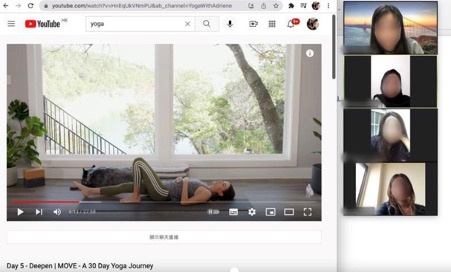The Service Outreach Experience Programme
Professional staff: Mr. Cavan Chan & Ms. Michelle Chan
Department: Student Development Services, City University of Hong Kong (CityU)
Email: cavan.chan@cityu.edu.hk; mic.chan@cityu.edu.hk
The Service Outreach Experience Programme (SOEP) was established at City University of Hong Kong (CityU) in 2019 to encourage students to widen their horizons and gain global insights by participating in overseas community services. However, many international community services were suspended due to impacts related to the COVID-19 pandemic. To continue these extra-curricular activities, Mr. Cavan Chan and Ms. Michelle Chan from the Student Development Services (SDS) dedicated their time to transforming SOEP into a series of virtual cultural activities. As a result, CityU students could meet their peers all over the world without leaving town.
To get prepared for virtual SOEP in 2021, SDS partnered with VolTra - a non-governmental organization (NGO) promoting international voluntary services. VolTra handled overseas student recruitment and provided an online communication platform. Cavan and his team made necessary adjustments to the service-learning programme when transferring it online. The virtual SOEP consists of two parts: Cultural Missions (CM) and Sustainable Development Goals (SDG). He highlights two top-rated virtual activities, “Sunrise” (recorded local sunrises and shared with others) from CM; and “Budget bites” (made three meals for 4-5 teammates with USD$10) from SDG. Those activities helped participants embrace and respect diversity and constitute a concern for the social development issues and global challenges. Upon completing the 2-week programme, each participant was given a satisfaction survey. The feedback received was overwhelmingly positive.
After organizing two rounds of the virtual service-learning programme, Cavan explicates that there are four critical points of consideration, including
1. motivate participants through fruitful and diversified learning activities and by the facilitator assigned to each group
2. limit one to two students Hong Kong students in each group to encourage the cultural diversity
3. provide clear guidelines to participants, such as timetable and tasks, especially before registration
4. work with a partner who can provide a communication platform and related technical support
Cavan believes that technologies offer abundant opportunities for students to explore the world. His team attempts to bring more creative service-learning experiences to students, such as working with overseas NGOs to do virtual volunteer teaching for remote villages. He also reflects the limitation of virtual service-learning and volunteerism practices. Therefore, physical SOEP is preferable when the pandemic improves.
Highlights of the Online Mission Challenge








